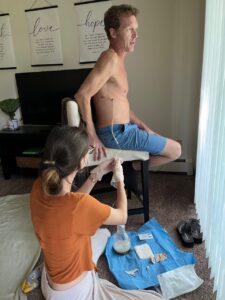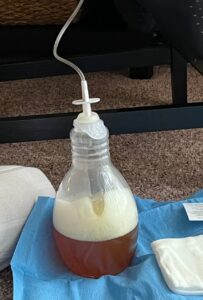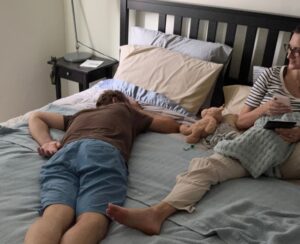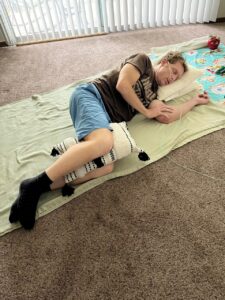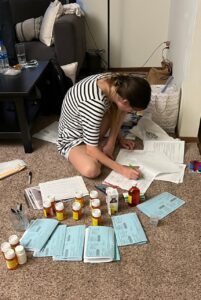The last month has seemed like a year and also like a week, all at the same time. A month ago, for the first time, I heard the word Cancer used by a doctor talking about the condition of my body, Stage 4 Lung Cancer. At first it felt like something that would only happen to someone else. Then I realized I had no comprehension of what I’d just been told.
One dominating thing for me throughout the month since then has been PAIN. It’s been nearly more than I could bear, and no meds could get on top of it. When you hit your hand with a hammer and the pain shoots into you, no encouraging word will help at that moment. And up until recently, I’ve had pain that’s been much like that.
It has included an intense and painful cough with severe pain in the bones around my whole rib cage, along with ongoing constipation, nausea, and vomiting. Constant shortness of breath was and is the norm for me. I still get completely out of breath after the slightest exertion.
 It took almost an entire week at the hospital with nonstop appointments and continual visits from nurses and doctors to stabilize the medications and their side effects. They needed to get ahead of my pain and then create a treatment program to get me to where I am today. Only since I came home from the hospital two days ago could I stop to take stock of what’s really going on.
It took almost an entire week at the hospital with nonstop appointments and continual visits from nurses and doctors to stabilize the medications and their side effects. They needed to get ahead of my pain and then create a treatment program to get me to where I am today. Only since I came home from the hospital two days ago could I stop to take stock of what’s really going on.
Being told that you have “Stage 4 Lung Cancer” is a foreboding diagnosis. It sounds more like a death sentence. And tonight I sit here trying to think it through.
I wonder why having a son and getting a cancer diagnosis happened at the exact same time. After having wished and hoped and prayed for a baby, I wonder why God would do that if I wouldn’t be here to raise him anyway. Will I be alive in a year? In five? How much pain will there be before it’s over? How long will it be before I no longer have to sleep sitting up? Will I ever be able to swim a mile in the open ocean again?
I know none of us can answer these questions, and the Scriptures tell us not to obsess over the future, so living for today is my plan. That’s what I’m determined to do. And it has proven to be a massive challenge and has shaken my whole thought process—as I’m sure it would many of yours.
I want to thank all of you for the love and support you’ve shown us during this month by showering us with gifts, helpful Scriptures, relevant sermons, cards, emails, texts, just all of it. Thanks you. It means so much to us.

